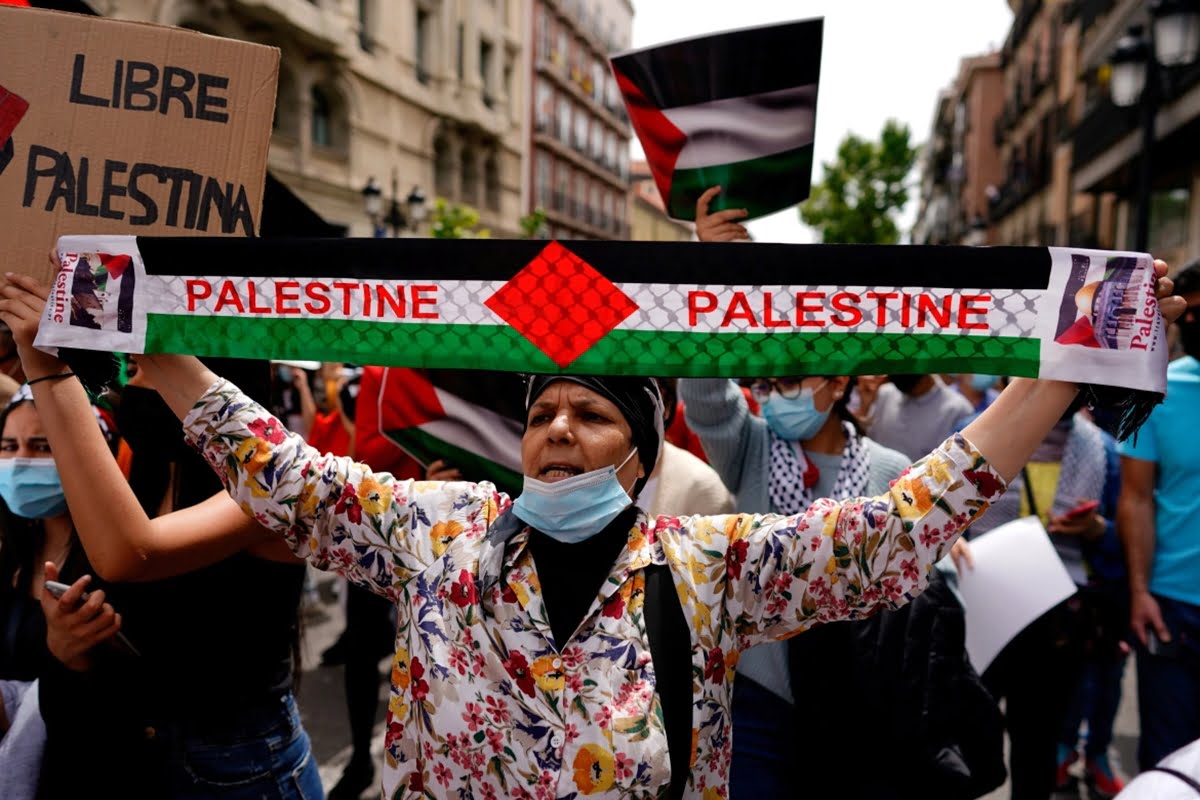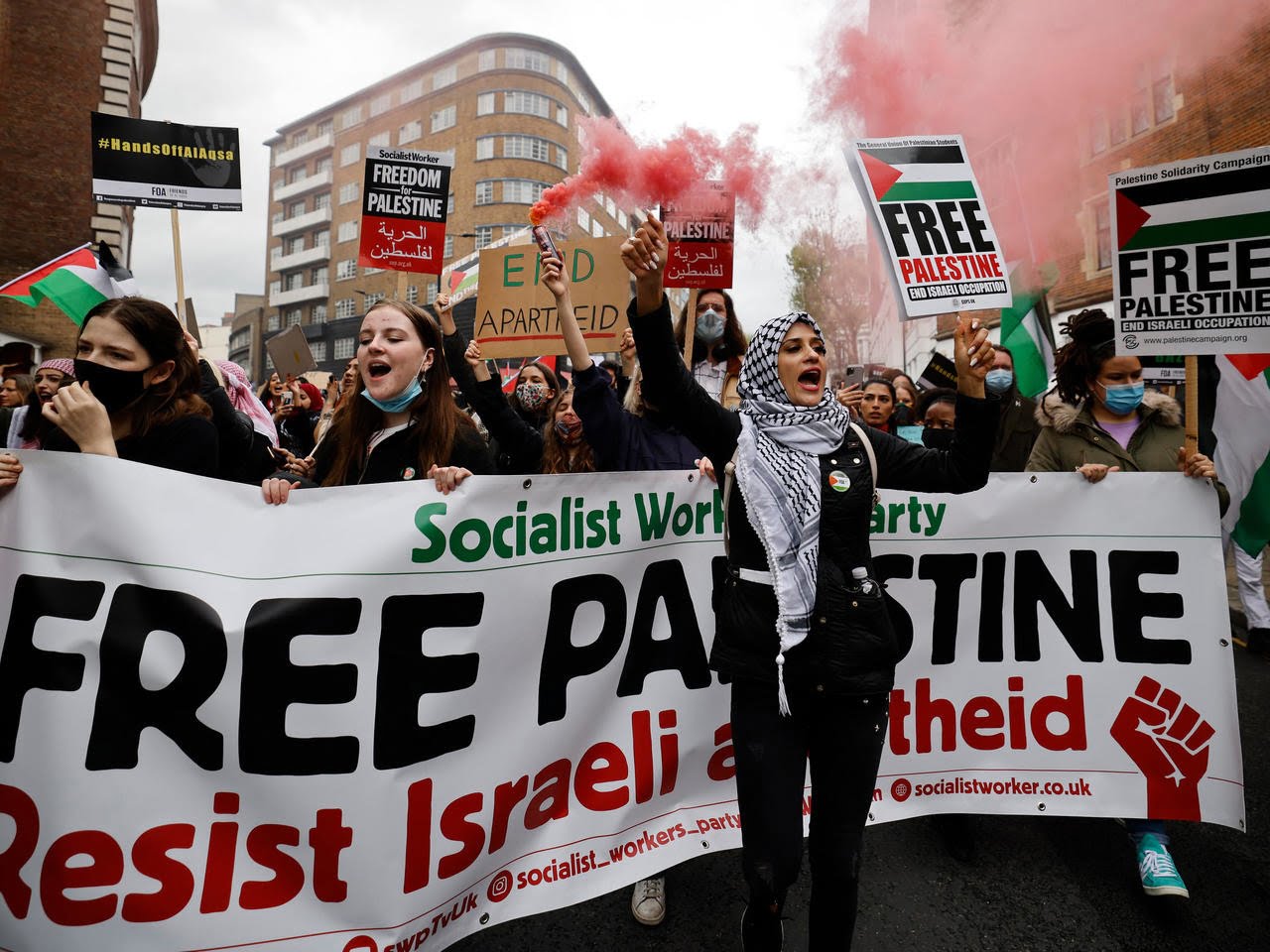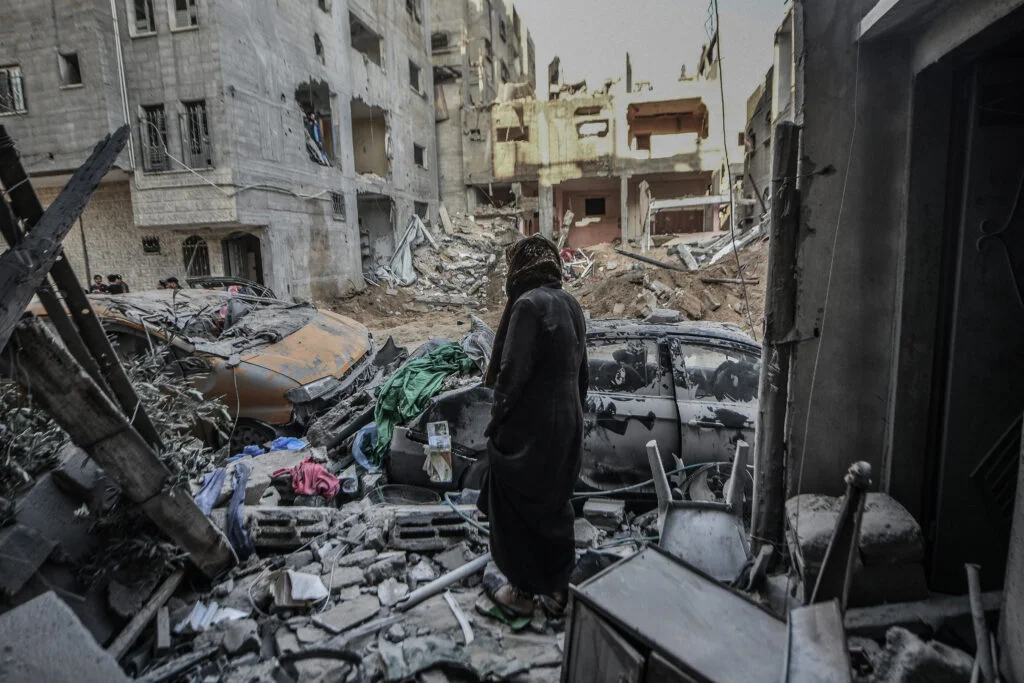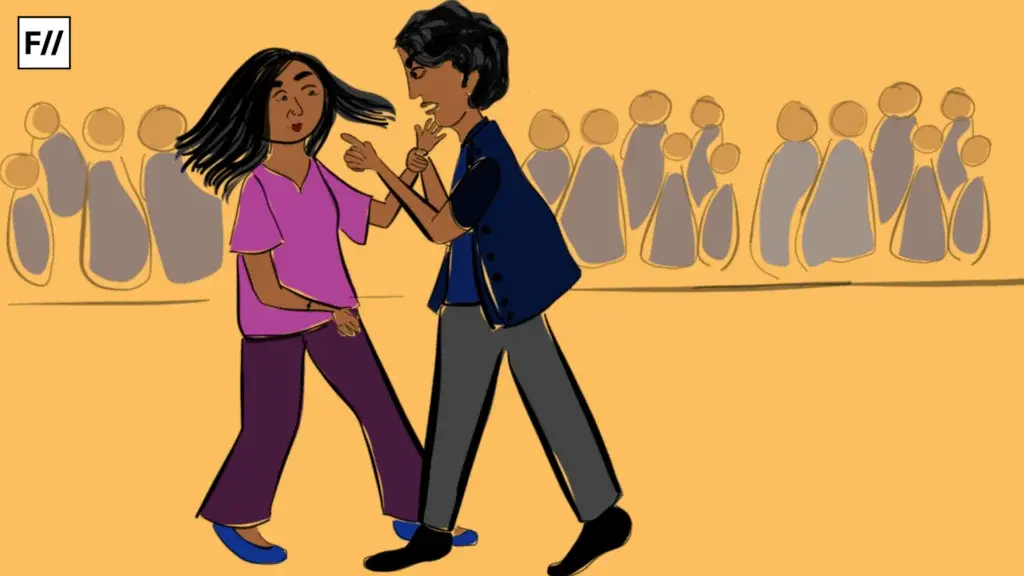As Of May 14, 2024, Israel has launched their Rafah operation, taking control of Gaza’s Rafah crossing, killing civilians in their wake. In their brutal project of genocide, much like the Nazi’s ‘Final Solution’, they are backed by the the USA, the UK and the geopolitical construct of the West.
In their brutal project of genocide, much like the Nazi’s ‘Final Solution’, they are backed by the the USA, the UK and the geopolitical construct of the West.
However, as pro-Palestine protests take over US Universities, starting from Columbia and spreading all across the nation, with students calling for the immediate divestment from Israel and organising peaceful rallies and encampments on campus in support of the Palestinian cause, it becomes imperative for the West to oppose and obstruct these protests, whether by brute physical force or by constructing strawman arguments within neo liberal intellectual circles to ideologically oppose the calls to end genocide.
The call for justices versus the cult of the Western liberal intellectual
Perhaps what alarms Israel and their Western cronies, after all, is the simplicity of the Palestinian cause. Only years after former colonised people in Asia, Africa and America have gained independence, does the West opine that maybe, colonialism was bad, and simply that. Western liberals concede that the colonialist project was a simple issue of the oppressor versus the oppressed. They make grand performances of their apologies, right from the Vatican issuing public statements regretting their historical justification of colonialism to European monarchs professing their regret, and promise reparations to the post colonial nations. At international diplomatic events, the West hangs out their guilt to dry for all to see, as if in a feeble attempt to assure the world that they have changed, that they are the good guys now.
However, it is only in retrospect that colonialism evokes liberal guilt. Perhaps, only when news becomes history, when it is temporally so far removed from their immediate present, the West can put up a show of their penance. Biden’s recent admission of the war on Iraq being a mistake makes one almost certain, that in thirty or forty years’ time, the genocide in Palestine would cease to be a “complex geopolitical issue” and be known for what it has always been, simply a mass ethnic cleansing of indigenous people by the Zionist state of Israel supported by Western imperialism. It is regrettable that for the West, hindsight is clearer than foresight.
Zadie Smith’s war of words on the Palestinian cause
On May 5th, The New Yorker published an op-ed by author and academic Zadie Smith, titled ‘Shibboleths’, which discusses the “war” in Gaza and the damaging potential of the language and rhetoric used in pro-Palestine protests in Universities. Despite being a woman of colour herself, who has written extensively about race and the effects of colonialism in a post modern West, Zadie Smith, best known for White Teeth, authors a piece which is ignorant at best and insensitive at worst.
Smith’s tone deaf dismissal of the importance of campus protests in favour of the over-intellectualisation and jargonisation of the genocide of Palestinians is testament to the West’s fear of the simplistic nature of the Israel-Palestine issue.
On May 5th, The New Yorker published an op-ed by author and academic Zadie Smith, titled ‘Shibboleths’, which discusses the “war” in Gaza and the damaging potential of the language and rhetoric used in pro-Palestine protests in Universities.
At a time when thousands of civilians, including children, are being killed and maimed by Israeli forces in Palestine and several young students are being arrested for protesting against this gross violation of human rights in “the land of the free” and “home of the brave”, it is crucial for liberal thinkers and intellectuals to read what they are writing once before publishing them for the world to see.
In her essay, Smith writes: ‘But, when I open newspapers and see students dismissing the idea that some of their fellow-students feel, at this particular moment, unsafe on campus, or arguing that such a feeling is simply not worth attending to, given the magnitude of what is occurring in Gaza, I find such sentiments cynical and unworthy of this movement. For it may well be—within the ethical zone of interest that is a campus, which was not so long ago defined as a safe space, delineated by the boundary of a generation’s ethical ideas—it may well be that a Jewish student walking past the tents, who finds herself referred to as a Zionist, and then is warned to keep her distance, is, in that moment, the weakest participant in the zone.’
Here, Smith draws up hypothetical situations and creates purported victims to back her strawman argument. In her very claim about seeing and understanding both “sides” of the Israel-Palestine issue, she over-complicates the starkly simplistic realities of a genocide. By sitting on the fence and making great proclamations, Smith, and the cult of Western liberal intellectuals have picked the “side” of the oppressor.
The jargonisation of a genocide: how Western intellectualism disrupts the Palestinian cause
Perhaps, this is the most gruesome Western fallacy- the assumption that every issue has two “sides”, both of which must be carefully heard out and measured against each other on the scales of justice. However, the geopolitical issue concerning Israel and Palestine can not be called an “argument”, a ”conflict” or even a “war”. Euphemism aside, the “issue” is simply a genocide, and we must remind ourselves, that a genocide does not involve two opponents, equal in power and demands. A genocide involves the oppressor and the oppressed.
The West’s over-complication of this simple truth and their persistence of this being a “grey area” can not just be brushed aside as mere stupidity or ignorance.
The West’s over-complication of this simple truth and their persistence of this being a “grey area” can not just be brushed aside as mere stupidity or ignorance. Its effects run deeper. Western liberal ideas and opinions, manufactured by the intelligentsia and the government, permeate into the psyche of the common man, through media and literature. A person who is actually unaware of the real context of the US University protest and Israel’s war on Palestine, who reads Smith’s essay in The New Yorker, will take her claims at face value and interpret that the genocide is indeed a “grey area” which requires a deeper geopolitical knowledge to decipher.
When they see pro-Palestinian protests, they would proclaim how the issue is “much more complicated and complex than that” and dismiss the politics of the protests. Essays like Smith’s op-ed breed willful ignorance and deters people, with or without popular influence from speaking out unconditionally against a genocide. It is clear therefore, that more than wanting the people to believe that there is no “genocide”, the West wants the world to believe that the situation is a complex geopolitical issue, replete with grey areas and ambiguity.
In her conclusion, Smith writes:
‘It is my view that my personal views have no more weight than an ear of corn in this particular essay.’
While one can only wish that it were true, the truth is that Smith is one of the most influential intellectual voices of our times. While she dismisses the weight her words hold, it cannot be denied that most readers would mould their politics around them. Therefore, it becomes her ethical duty to use her influence and power for good and empower the Palestinian cause by supporting the US University protests.
Smith writes in her essay:
‘In the campus protests over the war in Gaza, language and rhetoric are—as they have always been when it comes to Israel and Palestine—weapons of mass destruction.’
It is true that words are powerful in today’s world of catchphrases, often more so than actual bullets and missiles. Keeping this in mind, intellectuals like Zadie Smith must put them to good use and instead of dismissing and diluting the call for justice, must empower and energise the quest for equality, one shibboleth at a time.
About the author(s)
Ananya Ray has completed her Masters in English from Jadavpur University, Kolkata, India. A published poet, intersectional activist and academic author, she has a keen interest in gender, politics and Postcolonialism.









